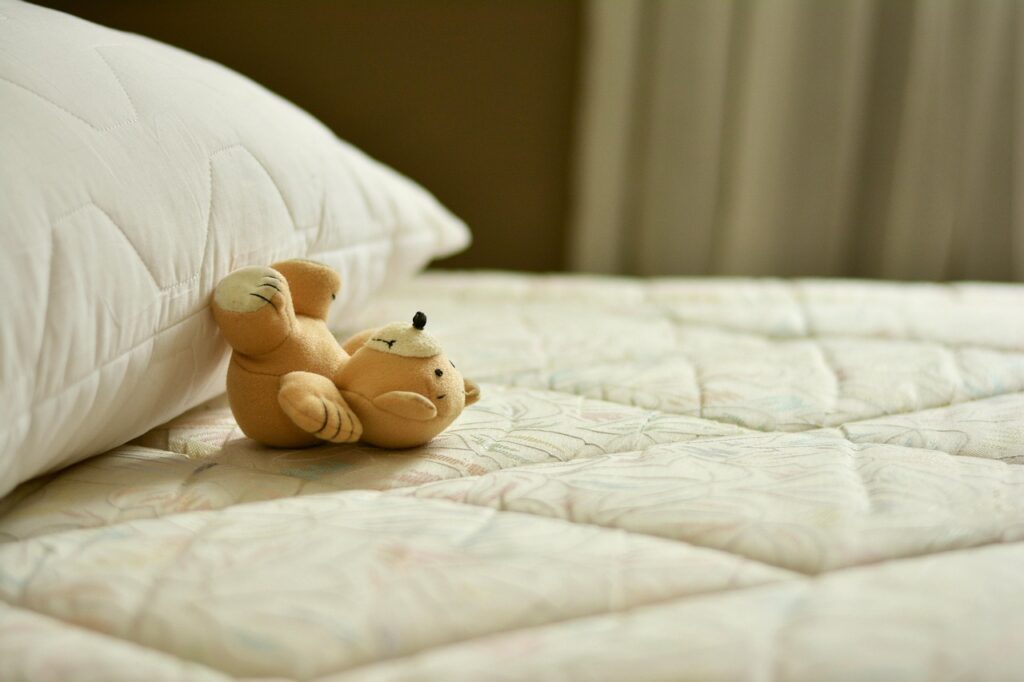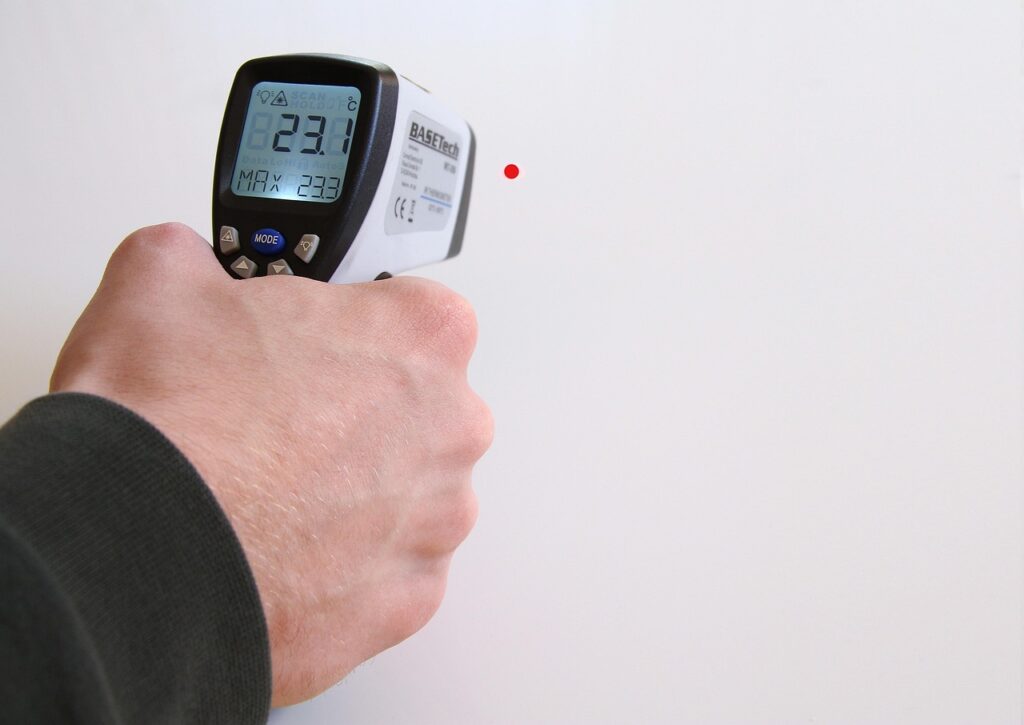
The quest for a truly restorative night’s sleep often feels like an elusive journey, yet many of us overlook the seemingly innocuous daily habits and environmental factors that silently sabotage our rest. While we might set aside enough time for sleep, a myriad of subtle issues can interfere with our ability to fall asleep and remain asleep long enough to complete all four vital stages of the sleep cycle. Understanding these underlying triggers is the first step toward reclaiming the quality sleep your body and mind desperately need for optimal health.
Poor sleep extends far beyond just feeling tired; it contributes significantly to a number of serious health issues, including heart disease and stroke, and should never be overlooked. Waking up feeling exhausted, irritable, and struggling with persistent brain fog are not just minor inconveniences, but clear signals that something is amiss with your sleep patterns. Ignoring these warning signs can have long-term consequences, impacting everything from cognitive function and mood to overall physical well-being.
This comprehensive guide aims to shed light on eight major, often unrecognized, reasons why you might be experiencing difficulty achieving a consistently good night’s sleep. By identifying these potential disruptors and understanding their mechanisms, you can begin to make informed adjustments to your routines and environment. Let’s explore these hidden culprits, empowering you to address them proactively and pave the way for more peaceful and rejuvenating nights.
1. **Your Temperature**Temperature plays a surprisingly critical role in the quality of your sleep, especially concerning the deepest stages. If your body remains too warm at night, you will undoubtedly find it challenging to complete REM sleep, which is the final and often most restorative stage of a full sleep cycle. Maintaining an optimal sleeping environment is therefore paramount for uninterrupted rest and dreaming.
Experts suggest that the ideal room temperature for sleeping hovers around 65 degrees Fahrenheit, which is approximately 18 degrees Celsius. This specific range helps facilitate the body’s natural cooling processes essential for initiating and sustaining sleep. Adjusting your thermostat to this recommendation can make a significant difference in your sleep initiation and overall comfort throughout the night.
Beyond ambient temperature, your internal body temperature is also a key player in your sleep architecture. Our bodies naturally operate a sophisticated process known as thermoregulation, guided by a 24-hour circadian cycle, that actively adjusts our core temperature. This biological rhythm is designed to support our sleep-wake cycle, preparing the body for rest as evening approaches.
A lower body temperature during the nighttime hours is highly conducive to falling asleep more quickly and, crucially, staying asleep for longer durations. Ensuring both your bedroom environment and your body are adequately cooled can optimize your chances of achieving profound and continuous sleep. Being mindful of these temperature dynamics is a practical step toward improving sleep quality.
Read more about: Urban Tomato Triumph: Your Comprehensive Guide to Growing Luscious Tomatoes in Any Small City Space

2. **Everyday Concerns**The daily grind, with its inevitable hurdles and stresses, can significantly affect your sleep quality, often without you fully realizing the profound impact. Whether it’s the looming deadline of a big report at work, the emotional aftermath of a recent disagreement with a loved one, or the frustrating financial burden of an unexpected car repair, these everyday concerns weigh heavily on the mind. The mental rumination they provoke makes true relaxation before bed an uphill battle.
These ongoing anxieties and frustrations prevent your mind from shutting down, keeping you in a state of heightened arousal long after you should be winding down. The constant loop of worries can lead to difficulty initiating sleep, leaving you tossing and turning for hours. Such mental unrest directly contradicts the peaceful state necessary for a smooth transition into sleep, prolonging the time it takes to drift off.
The psychological toll of these everyday stressors often manifests as fragmented sleep, where you might wake up frequently throughout the night. Each interruption prevents you from reaching deeper, more restorative sleep stages, compounding the feeling of fatigue the next morning. The quality of your rest is thus directly compromised by the unresolved issues simmering in your subconscious.
Ultimately, these pervasive daily concerns can create a vicious cycle, where lack of sleep exacerbates stress, and increased stress further disrupts sleep. Recognizing the potent connection between your waking worries and your nighttime rest is crucial. Addressing the underlying anxieties, even through simple mindfulness techniques or setting aside specific “worry time” earlier in the day, can be an important step towards better sleep hygiene.
Read more about: Unmasking the Real Expenses: A Comprehensive Guide to Calculating the True Cost of Owning an Older Home
3. **Alcohol**Despite its widespread use as a nocturnal unwind strategy, alcohol, particularly consumed closer to bedtime, proves to be more detrimental than beneficial for healthy sleep. While many individuals, including a significant portion of the population – with “around 20% of Americans relying on it to help them fall asleep” – turn to alcohol as their go-to sleep aid, its effects on sleep architecture are complex and ultimately disruptive.
Initially, alcohol may indeed appear to facilitate sleep onset, helping you fall asleep quickly due to its sedative properties. This immediate effect often misleads individuals into believing it’s a reliable solution for sleeplessness. However, this initial ease into sleep is a deceptive trade-off for what happens later in the night, undermining the very quality of rest it seemed to promise.
The true impact of alcohol manifests during the second half of the night, where its presence leads to significantly more disrupted sleep. As the body metabolizes alcohol, its sedative effects wear off, often resulting in fragmented sleep patterns and frequent awakenings. This disruption prevents the consolidated sleep necessary for deep rest, leaving you feeling unrested despite having spent hours in bed.
Consuming alcohol, especially in the hours leading up to sleep, can also worsen existing sleep conditions like snoring and potentially exacerbate symptoms of sleep apnea. The overall effect is a reduction in total sleep time and a significant decrease in REM sleep, which is crucial for cognitive function and emotional regulation. Opting for non-alcoholic alternatives to relax before bed is a far more sleep-friendly choice.
Read more about: Mel Taub: A Deeper Look at the Ingenious Mind Behind The Times’s Pun-Loving Puzzles

4. **Caffeine**Perhaps one of the most widely acknowledged, yet often underestimated, culprits in sleep disruption is caffeine. As a potent stimulant, caffeine directly interferes with your body’s natural sleep-wake cycle by blocking adenosine, a neurotransmitter that promotes relaxation and sleepiness. This interference opens you up to a number of undesirable side effects that can severely hamper your ability to achieve restful sleep.
The immediate effects of caffeine consumption can manifest as pronounced restlessness, making it nearly impossible to settle down and relax as bedtime approaches. This heightened state of alertness keeps your mind racing and your body wired, directly counteracting the physiological signals for sleep. Consequently, falling asleep becomes a prolonged and frustrating ordeal.
Furthermore, caffeine can elevate your heart rate, contributing to a sense of anxiety or agitation that is antithetical to a calm pre-sleep state. In addition to cardiovascular effects, some individuals may experience uncomfortable stomach cramps and an increased need for frequent urination, both of which can lead to unwelcome nighttime awakenings. These physiological disturbances collectively make sustained, deep sleep extremely difficult.
Given its pervasive and long-lasting stimulating effects, it is crucial to be mindful of your caffeine intake, especially as the day progresses. The half-life of caffeine means it can remain in your system for many hours after consumption, continuing to exert its disruptive influence. Curtailing caffeine intake, particularly several hours before you intend to sleep, is a fundamental strategy for protecting your precious nightly rest.
Read more about: Seriously What Happened? From Classic Blends to Legal Battles: 8 Cigar Brands That Mysteriously Vanished from Local Tobacco Shops

5. **Sleep Apnea**Sleep apnea stands as a particularly insidious disruptor of sleep, often operating silently in the background, undermining restorative rest without the individual’s full awareness. It’s identified as one of the leading causes of interrupted sleep, a condition affecting a significant portion of the population. Troublingly, while it impacts about 12% of Americans, an alarming statistic reveals that approximately 80% of those suffering from sleep apnea go undiagnosed, leaving countless individuals to contend with its debilitating effects unknowingly.
This widespread lack of diagnosis means that many people endure chronic fatigue and a host of other symptoms, mistaking them for general tiredness or other minor ailments. The constant, repetitive interruptions to breathing throughout the night, characteristic of sleep apnea, prevent the body from entering the deeper, most crucial stages of sleep. Consequently, the brain and body are deprived of the essential restorative processes that occur during these cycles, leading to profound long-term health implications beyond just feeling sleepy.
The symptoms of sleep apnea extend far beyond mere snoring, which, while common, is often a key indicator, and can be worsened by alcohol use. Individuals may experience excessive daytime fatigue that isn’t alleviated by simply spending more time in bed, along with cognitive impairments such as trouble concentrating and memory problems. Mood swings, irritability, and persistent headaches are also frequently reported, painting a picture of a condition that profoundly impacts daily life, productivity, and emotional well-being.
Recognizing these warning signs is a critical first step towards addressing the issue. If you find yourself battling a combination of these symptoms throughout the night or consistently waking up feeling unrefreshed, it is imperative to consider getting tested for sleep apnea. An accurate diagnosis opens the door to effective treatments that can dramatically improve sleep quality, mitigate health risks, and restore a sense of vitality and cognitive clarity, transforming not just your nights but your entire waking life.
Read more about: Navigating the Final Hours: Key Symptoms and Changes to Expect 24-48 Hours Before Death
6. **Your Diet**While the allure of a midnight snack is undeniably strong, and indulging in one can bring a fleeting sense of comfort, what and when we eat can dramatically impact the quality of our sleep. It’s a fundamental truth that our dietary choices are deeply intertwined with our body’s ability to transition into and sustain a state of restful slumber. However, many individuals unwittingly sabotage their sleep patterns by consuming certain foods, particularly those high in fat and calories, too close to bedtime.
Research consistently shows that higher fat and calorie consumption at night has a direct negative correlation with the quality of sleep, especially making it harder for both men and women to reach the vital REM sleep stage. The digestive process, already a complex and energy-intensive bodily function, becomes an arduous task when burdened with heavy, rich foods late in the evening. Instead of winding down, your body’s systems are working overtime, trying to break down and process the meal.
This physiological overdrive prevents the body from achieving the deep state of relaxation necessary for sleep initiation and continuity. The discomfort from indigestion, acid reflux, or simply the sheer effort of digestion can keep you awake, or cause frequent awakenings throughout the night. When your body is focused on metabolizing a large meal, it diverts energy away from the crucial restorative processes that are meant to occur during sleep, leading to fragmented and unrefreshing rest.
To safeguard your sleep and ensure a more peaceful night, it is advisable to avoid big meals right before going to sleep. Prioritize lighter, easily digestible foods if you must eat close to bedtime, allowing your digestive system sufficient time to complete its work before you attempt to drift off. Making conscious, healthier dietary choices in the evening can be a simple yet profound step towards unlocking deeper, more consistent sleep and waking up truly refreshed.
Read more about: Totally Twisted, 14 Movies Where The Main Character Is Pure Evil (And We Still Root For Them)

7. **Anxiety and Depression**The intricate connection between mental health and the quality of our sleep cannot be overstated. Conditions such as anxiety and depression are not merely emotional burdens; they are deeply intertwined with physiological processes that govern sleep, creating significant interruptions in sleep patterns. This interplay makes it increasingly difficult for individuals grappling with these health issues to achieve and maintain restorative sleep, particularly struggling to reach the crucial REM sleep stage.
For those experiencing anxiety, the mind often remains in a state of heightened arousal, filled with racing thoughts, worries, and an inability to quiet the internal chatter. This mental hyperactivity acts as a significant barrier to falling asleep, prolonging the time it takes to drift off and often leading to restless nights. Similarly, depression can manifest in sleep disturbances, including early morning awakenings or fragmented sleep, where the body and mind are unable to consolidate the necessary stages of rest.
The relationship between mental health and sleep is often a bidirectional, self-perpetuating cycle. Poor sleep can exacerbate the symptoms of anxiety and depression, making it harder to cope with daily stressors, regulate emotions, and maintain cognitive function. Conversely, the untreated symptoms of anxiety and depression further disrupt sleep, creating a vicious loop that can be challenging to break without targeted intervention, deepening the sense of fatigue and mental distress.
Given this profound link, addressing mental health concerns is a fundamental step toward improving sleep quality. If you believe you are suffering from either anxiety or depression, especially if these conditions are accompanied by persistent sleep difficulties, it is crucial to talk to your doctor. Developing a comprehensive game plan to treat your anxiety or depression, potentially involving therapy, medication, or lifestyle adjustments, can significantly help in restoring healthy sleep patterns and, in turn, contribute to an overall improvement in your mental and physical well-being.
Read more about: Reclaiming Your Attention: A Practical Guide to Breaking Free from the Endless Scroll of Social Media
8. **The Impact of Medications**Medications are often indispensable tools in managing and treating a myriad of conditions and illnesses, offering relief and improving quality of life. However, it’s a critical, yet often overlooked, fact that certain medications can inadvertently become significant disruptors of sleep, leading to troublesome side effects like insomnia. These unintended consequences can transform the very solutions designed to alleviate ailments into sources of nighttime distress, impacting overall health and daily function.
Various categories of prescription drugs have been identified as potential culprits in hindering sleep quality. For instance, alpha-blockers, commonly prescribed for conditions such as high blood pressure and benign prostatic hyperplasia, have been linked to reduced REM sleep. This reduction in the final, often most restorative, stage of a full sleep cycle means that individuals may experience less dreaming and wake up feeling less refreshed, impacting cognitive function and emotional regulation.
Similarly, beta-blockers, another class of medications for heart conditions and anxiety, are frequently associated with more generalized sleep disturbances, including an increased incidence of nightmares and frequent awakenings in the middle of the night. Steroids, widely used for their anti-inflammatory properties, can also profoundly impact the body’s natural systems that promote relaxation and sleep, potentially resulting in bad dreams and significant trouble falling asleep, further compounding the challenge of achieving restful slumber.
While some medications can be detrimental, it’s important to acknowledge that certain over-the-counter sleep aids and supplements, such as Benadryl, melatonin, and Valerian root, are available and can offer short-term assistance for better rest. Additionally, doctors may prescribe specific sleeping pills for patients experiencing persistent difficulty. However, a crucial caveat is that both over-the-counter and prescription sleep medications are generally designed to provide only a short-term solution and should not be relied upon for extended periods due to potential side effects, dependency, or a masking of underlying issues.
Therefore, if you find yourself struggling with sleep issues that you suspect may be connected to your current medications, the most prudent course of action is to consult with your physician. Your doctor is uniquely positioned to evaluate your medication regimen, discuss potential interactions, and explore alternative treatments or adjustments that can help mitigate sleep disruption while effectively managing your health conditions. This professional guidance ensures a balanced approach to your well-being, prioritizing both treatment efficacy and the indispensable need for quality sleep.
Read more about: Navigating the Final Hours: Key Symptoms and Changes to Expect 24-48 Hours Before Death
As we’ve explored the subtle yet significant factors that can disrupt your sleep, it becomes clear that achieving truly restorative rest is an intricate dance between environmental control, mindful choices, and understanding your body’s internal landscape. From the hidden challenges of sleep apnea to the pervasive influence of diet, mental health, and even the medications we rely on, each element plays a crucial role in the nightly symphony of sleep. By recognizing these often-unseen culprits, you’re now empowered to take proactive steps, make informed adjustments, and seek the right support. Remember, a good night’s sleep isn’t a luxury; it’s a fundamental pillar of health, and by addressing these disruptors, you’re not just improving your nights, but enhancing every aspect of your life.







